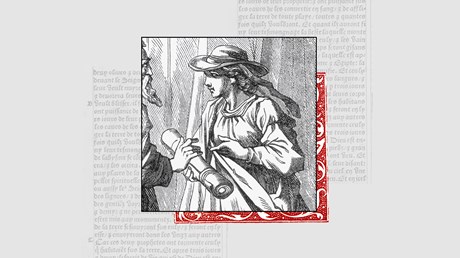Meet Phoebe, the first interpreter of Romans.

Sometimes the ordinary moments of life stick with you. I (Jennifer) recall running errands with my mom when I was seven years old. We had stopped at the bank and, as was customary at the time, my mom gave her name as “Mrs.” and then my dad’s first and last name. The combination of “Mrs.” and my dad’s first name sounded strange to my ears, and I laughed out loud in genuine amazement. “Mom, that’s Dad’s name,” I insisted, baffled. “You have your own name!” I still recall how she and the bank teller looked back at me with surprise. Our exchange turned out to be a microcosm of a shift in generational perspectives taking place across 20th-century America.
Long before American culture began grappling with how best to create space for the given names of women, Scripture was ahead of the curve. In fact, Scripture consistently defied the cultural practices of its own times by recording the names of ordinary women throughout its pages. Recording the names of ordinary women in the grand story of God’s creation and redemption is one of the most unsung, remarkable examples of the Bible’s textual coherence.
Of course, some women’s stories are more accessible in Scripture than others. Without the benefit of expertise in the New Testament, any mention of “Phoebe” (Rom. 16:1–2) is more readily connected in our cultural context with the lovable, ditzy blond musician from the NBC hit show Friends than the woman called out in Romans. A faith that seeks understanding will always probe the text further. Who was Phoebe, and what was her relationship to this most influential letter?
The Purest Gospel
All Scripture is God-breathed, but not every ...
from Christianity Today Magazine
via

.gif)

.gif)

.gif)
.gif)
